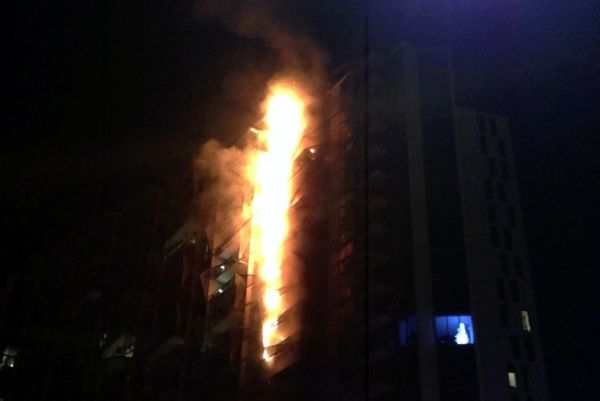SCA chief executive Kim Henshaw said state and federal governments needed to get on board to tackle the issue before there was a repeat of the Lacrosse apartment fire in Docklands, Melbourne, which was exacerbated by an aluminium cladding project that failed to pass fire safety regulations.
Mr Henshaw said the Melbourne Metropolitan Fire Department had said it may “stay on the sidelines” of high-rise fires due to the dangers associated with the widely used combustible cladding product, known as Alucobest.
SCA is worried that the Melbourne firefighters’ position will be taken up nationwide, meaning huge risks for the $1.2 trillion strata sector.
“I don’t think it’s at all unreasonable for our fire services to modify their response to be ‘less aggressive’ to protect the lives of fire crews if attending a blaze where the compliance of building products cannot be assured,” Mr Henshaw said.
“Our problem is not with the firefighters. This issue needs to be fixed quickly by government.
“That said, a situation where a fire is fought less aggressively by the fire brigade could have serious consequences; not only for the financial investment of lot owners but, at its worst, for the safety of the building’s occupants.
“Clearly this is not something that anyone wants to see happen but if these products continue to reside within the buildings and strata communities of Sydney we will see fire departments and officials all around the country continue to take tough stances like the ones seen in Melbourne.”
Sydney under threat
He said that regions like Sydney continued to be threatened by the use of inferior, imported products within local construction.
“The NSW and federal governments must get all hands on deck for this issue, before we see a repeat of previous catastrophic fire events,” Mr Henshaw said.
Engineers Australia’s Robert Hart recently predicted a new high-rise apartment building in Sydney would experience a major fire in the next two years, blaming the NSW government, which he said had “the worst system of certification in Australia”.
State and federal building ministers recently announced they would consider mandatory certification scheme for high-risk building products, in response to concerns.
Mr Henshaw said this did not go far enough, with the strata sector calling for a separate effort to rid buildings of hazardous materials.
“We’ve been calling for urgent building inspections for some time now and we hope this recent warning is a catalyst for thousands of property owners to check up on their property now,” Mr Henshaw said.
“In time, we hope to see some good strategies come out of the working group that will right the ship moving forward, but it would be remiss to not do anything before the conclusion of the working group in six months time.
“The longer we let this issue linger, the greater the risk being placed on Australian properties and their occupants.”


